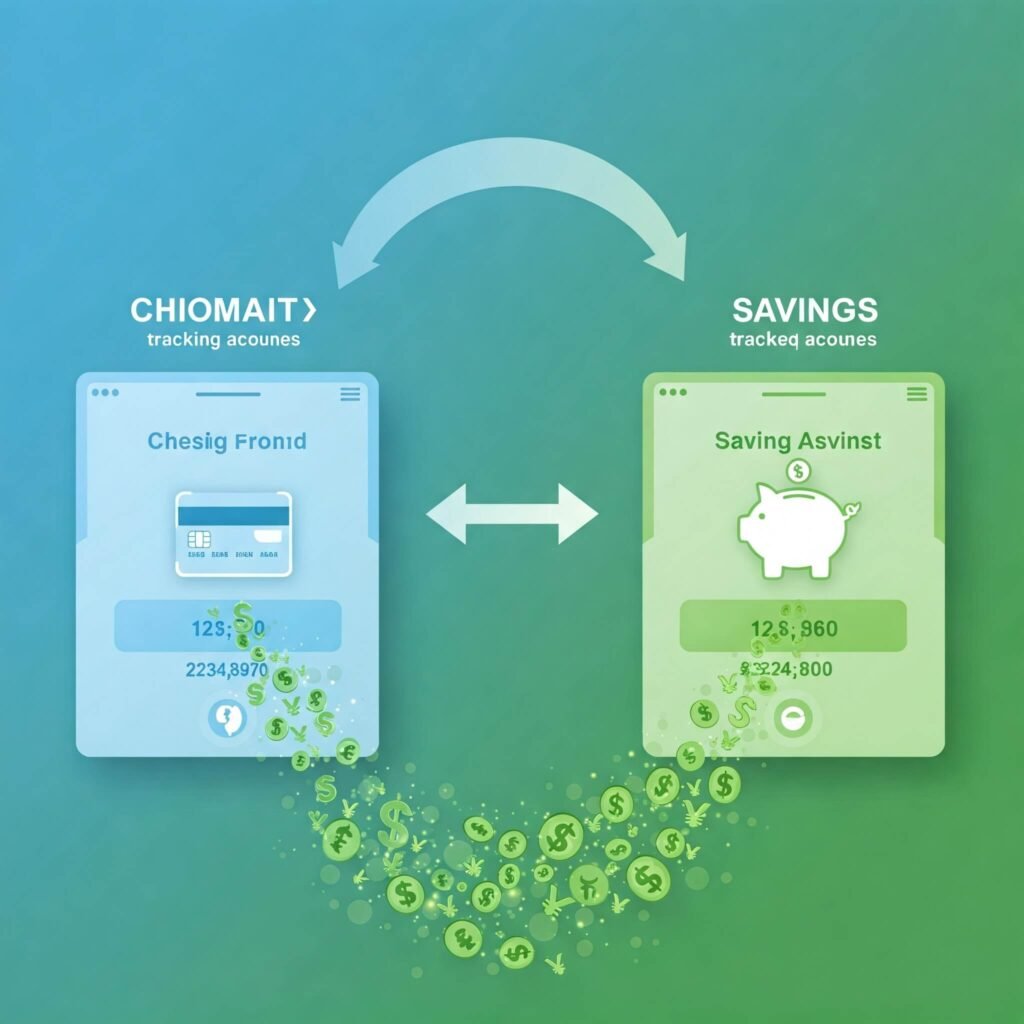Are you tired of feeling like your hard-earned money disappears too quickly? You’re not alone! Indeed, many people wish they had adopted effective money-saving strategies earlier in life. The good news is, however, it’s never too late to take control of your finances and start saving money in a smarter way. This blog post explores 10 genius money-saving strategies that are easy to implement and can significantly improve your financial health. So, get ready to discover actionable tips for better money management that you’ll wish you knew sooner!
1. Harnessing the Power of Automated Savings for Financial Growth
First and foremost, one of the most impactful money-saving strategies is to automate your savings. By setting up recurring transfers from your checking account to your savings on payday, you, in essence, treat saving like any other essential bill. This consistent approach to saving money allows even small amounts to accumulate substantially over time, thereby bolstering your overall financial well-being.
- Actionable Tip: Schedule automatic transfers for 10-15% of your income to a dedicated savings account as a core personal finance habit for effective money-saving.
- Example: For instance, with a monthly income of $3000, automating a $300-$450 transfer is a powerful saving hack and a key money-saving strategy.

2. Establishing a Budget: Your Foundation for Smart Spending
Furthermore, creating and adhering to a budget is a fundamental element of successful money-saving strategies. It provides a clear overview of your income and expenditures, enabling you to identify areas of overspending and, consequently, make informed decisions about your expense reduction efforts. This is, without a doubt, a crucial step in effective money management.
- Actionable Tip: Utilize budgeting apps, spreadsheets, or the envelope system to meticulously track your spending for enhanced money management and better money-saving.
- Example: For example, tracking your expenses for a month will reveal spending patterns and highlight opportunities for cost-cutting, such as reducing dining out or entertainment costs – a key element of many money-saving strategies.
[Outbound Reference Link: Consider linking to a reputable budgeting app like Mint or YNAB.]
3. Pruning Unnecessary Subscription Costs for Increased Savings
In addition, in today’s digital age, numerous subscription services vie for our attention and money. Therefore, regularly review your monthly subscriptions – from streaming platforms to gym memberships and software – and cancel those you rarely use. This straightforward way to save money can lead to significant savings and contribute to reducing expenses, a vital aspect of effective money-saving strategies.
- Actionable Tip: Conduct a thorough audit of your subscriptions and cancel any that haven’t been used in the past month or two for better financial tips and enhanced money-saving.
- Example: To illustrate, if you subscribe to three streaming services but only actively watch one, canceling the other two is a practical saving hack and a smart money-saving strategy.
4. Implementing Smart Meal Planning to Reduce Food Expenditures
Moreover, frequent restaurant meals can significantly strain your budget. Therefore, implementing meal planning and prioritizing home-cooked meals is a highly effective money-saving strategy that promotes smart spending and contributes to overall money management.
- Actionable Tip: Plan your weekly meals, create a detailed grocery list, and stick to it for optimal cost-cutting and effective money-saving.
- Example: For instance, choosing to cook at home instead of ordering takeout twice a week can save money in the range of $20-$50 weekly, a significant money-saving strategy.

5. Cultivating Savvy Shopping Habits for Greater Financial Efficiency
Furthermore, developing smart shopping habits is essential for successful money-saving strategies. This includes diligent price comparison, utilizing coupons and cashback apps, and strategically waiting for sales before making non-essential purchases, aligning with principles of frugal living and effective money-saving.
- Actionable Tip: Install browser extensions that automatically search for and apply coupons while you shop online, enhancing your personal finance efforts and contributing to money-saving.
- Example: To illustrate, employing cashback apps like Rakuten or Honey allows you to earn money back on both online and in-store purchases, a valuable saving hack and a smart money-saving strategy.
[Outbound Reference Link: Consider linking to a reputable coupon website or cashback app.]
6. Leveraging DIY Skills and Home Repairs for Cost Reduction
Additionally, acquiring basic DIY skills and tackling minor household repairs yourself can yield substantial savings on service fees. This is a practical and empowering money-saving strategy for effectively reducing expenses and improving your money management.
- Actionable Tip: Explore online tutorials to learn how to address common household issues or undertake simple DIY projects for effective cost-cutting and significant money-saving.
- Example: For example, attempting to fix a leaky faucet by following a YouTube tutorial instead of hiring a plumber can save money, a tangible benefit of this money-saving strategy.
7. Optimizing Home Energy Consumption for Long-Term Savings
Moreover, reducing your household energy consumption is not only environmentally responsible but also a smart money-saving strategy. Implementing simple changes can lead to noticeable reductions in your utility bills and contribute to improved financial well-being through effective money management.
- Actionable Tip: Transition to energy-efficient light bulbs, unplug electronics when not in use, and adjust your thermostat settings for better money management and long-term money-saving.
- Example: For instance, adjusting your thermostat by a few degrees during heating and cooling seasons can significantly reduce expenses related to energy consumption, a key aspect of many money-saving strategies.
8. Proactively Negotiating Bills for Enhanced Savings
Furthermore, don’t hesitate to negotiate your recurring bills, such as internet, cable, and insurance premiums. Service providers often have some flexibility and are willing to offer better deals if you inquire. This proactive way to save money supports smart spending and contributes to effective money-saving.
- Actionable Tip: Contact your service providers to inquire about potential discounts or promotions for improved financial tips and enhanced money-saving.
- Example: To illustrate, you might successfully negotiate a lower monthly rate for your internet service simply by asking, leading to tangible savings as part of your overall money-saving strategy.
9. Utilizing the Secondhand Marketplace for Affordable Purchases
Additionally, consider purchasing used items instead of new whenever feasible. From clothing and furniture to books and electronics, the secondhand market offers excellent value and aligns with principles of frugal living and effective cost-cutting, representing a smart money-saving strategy.
- Actionable Tip: Explore thrift stores, online marketplaces, and consignment shops to meet your needs and save money through this effective money-saving approach.
- Example: For example, finding high-quality furniture or clothing at significantly lower prices by buying secondhand is a smart saving hack and a practical money-saving strategy.

10. Strategically Planning Ahead for Significant Expenditures
Finally, resist the urge for impulsive large purchases. Planning and diligently saving for significant expenses allows you to avoid incurring debt and potentially secure better deals. This is a critical money-saving strategy for long-term personal finance and overall financial well-being through effective money management.
- Actionable Tip: Establish sinking funds for anticipated large expenses like a new vehicle or home renovations for better money management and significant money-saving.
- Example: To illustrate, saving up for a new appliance over several months instead of using a credit card helps you save money by avoiding interest charges, a cornerstone of sound money-saving strategies.







































